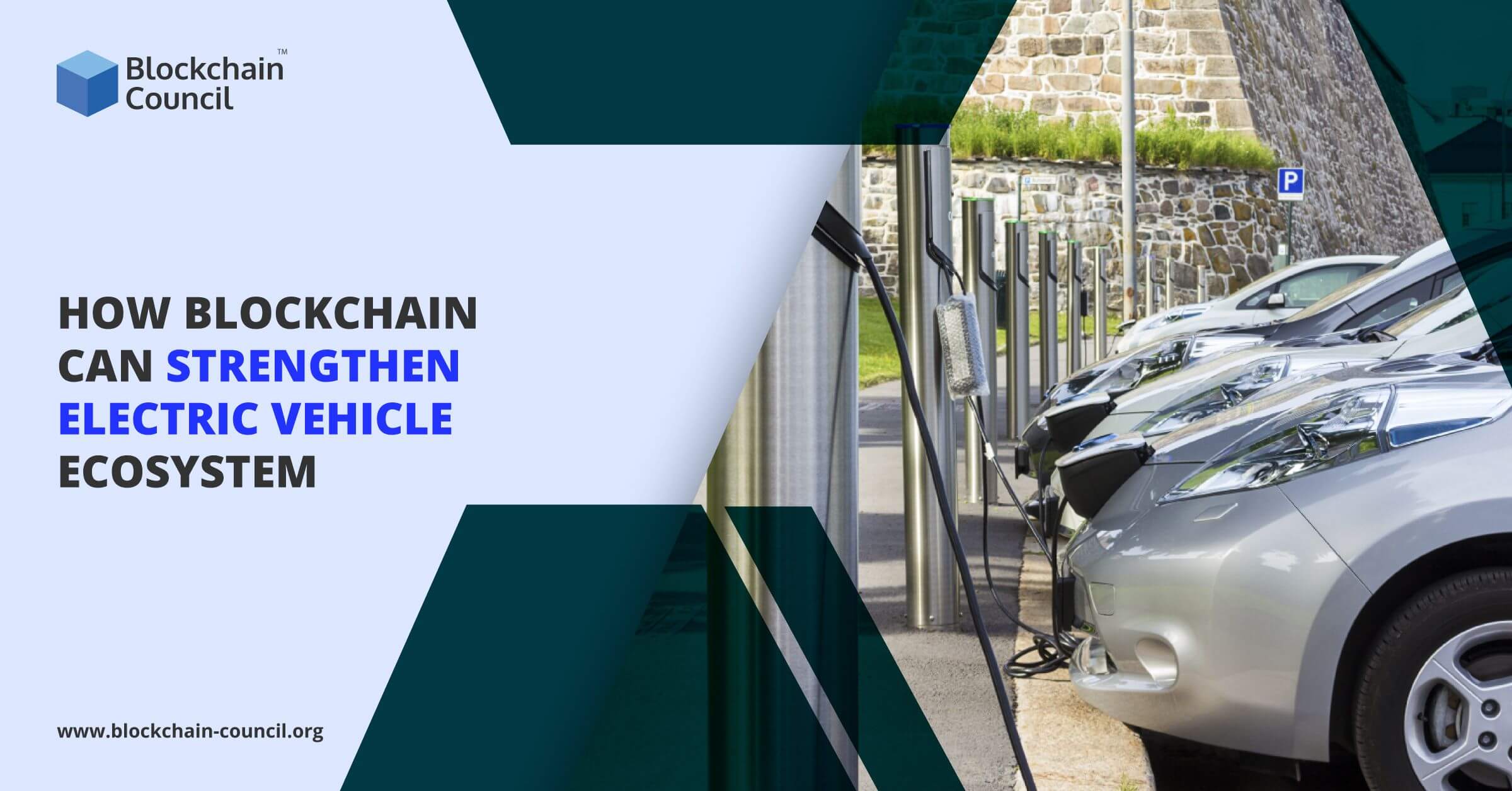
- Toshendra Kumar Sharma
- July 17, 2020
We have heard a lot about blockchain and its use cases across various domains such as healthcare, finance, supply chain management, digital identification, and much more. In this article, we will discuss the role and potential that blockchain holds in transforming electric vehicles.
Learning of the Blog
- Understanding Blockchain Technology
- Key Challenge to Widespread Adoption of Electric Vehicles
- Peer-to-peer EV Charging
- Challenges to Deal with
- Conclusion
Understanding Blockchain Technology
Blockchain is a distributed ledger technology that holds immutable data in a secure and encrypted way. This peer to peer, decentralized technology has no central authority to govern and provides complete transparency, privacy, security, and ensures that transactions can never be altered. Due to its high potential to revamp almost all industries, it is continuously finding a broader range of use cases. With supply chain, finance, digital identity, asset management, art &music industry, electric vehicle(EV) is no more an exception.
Experts believe that this new use case of blockchain has the potential to reduce range anxiety for drivers by offering P2P charging and increase the attractiveness of EVs in the years to come.
According to the recent Guidehouse Insights Report, “Blockchain-Based EV Charging & Grid Integration Market Is Expected to Experience a 78% Compound Annual Growth Rate from 2020-2029.”
Curious to learn more about blockchain technology and its use cases? Check out the best blockchain certification course and become a Certified Blockchain Expert.
Key Challenge to Widespread Adoption of Electric Vehicles
Range anxiety is the foremost factor that acts as a barrier to EV adoption. Many people fear of running out of battery power for longer trips. This is because everywhere you can’t expect electric chargers to be available. Without adequate infrastructure widely available, potential consumers remain hesitant to switch to EV. Compared to fossil fuel, EVs’ unavailability of charging infrastructure is one of the prime deciding factors for vehicle buyers.
Peer-to-peer EV Charging
As we already mentioned that blockchain is a peer to peer technology, thus with P2P networks, it can allow individuals to share their private chargers with others if they are not using them. Moreover, in return, charger owners can earn decent cash from their idle chargers. It allows individuals and entities to trade and buy excess energy between them, without involving any middlemen/central authority.
P2P networks have already established marketplaces to connect electric vehicle drivers with each other so they can share charging stations whenever required. It offers flexibility to the EV driver to charge their vehicles at different locations.
With blockchain’s P2P network, users can access participating homeowners’ locations on their app to charge their electric vehicles. A proprietary service record and maintains a track of the amount of time and energy spent to charge a particular electric vehicle. Further, a ledger account (that maintaining all the genuine transactions executed between network participants) takes place that enables digital payment from the driver to the charger’s owner.
Not only this, but the greater implementation of smart grid technology, the usage of shared batteries, and the entry of new participants in both the charging and utility spaces are also the other positive factors that blockchain can bring.
Moreover, as the standard accounting method for earning credits is complex, and often records are reconciled quarterly to calculate the amount of fossil fuel displaced per EV charging unit. Blockchain can replace this tedious process by an auditable, transparent, and automated record of energy generation, and its consumption.
Challenges to Deal with
Undoubtedly, blockchain is transforming the way industries operate, and EV is no more an exception. But when it comes to challenges, blockchain itself deals with various issues such as reputation challenge, technical scalability issue, difficult integration with legacy systems, and many others. Moreover, apart from the concerns about regulations and cryptocurrencies, the EV market is still in its fantasy stage, and there is no guarantee when it will become a mass adoption.
Concluding Lines
As blockchain has the potential to streamline energy payments, facilitate a more efficient EV charging network, and coordinate maps of charging stations, various companies and initiatives are offering P2P charging solutions using blockchain-based platforms such as Easy Park, Chargemap, Aerovironment, Oxygen Initiative, Charg, and others. eMotorWerks, which is a California-based firm, was the first company in the US to establish a P2P network in its partnership with Share& Charge.
What’s your say, whether the integration of blockchain with EV could be a long-run solution or a short-term? Let us know in the comment section.
To get instant updates about Blockchain Technology and to learn more about online blockchain certifications, check out Blockchain Council.
































































 Guides
Guides News
News Blockchain
Blockchain Cryptocurrency
& Digital Assets
Cryptocurrency
& Digital Assets Web3
Web3 Metaverse & NFTs
Metaverse & NFTs
